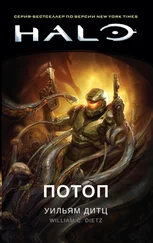“And I don’t like eating MREs three times a day.”
A chilly silence followed. Kroll spoke first. “I will discuss the matter with Colonel Lassiter.”
“Give him my best,” Mac said as she stood. “And don’t stall. That would really piss me off.” Then she left.
Mac’s body was trembling as she left the building. Had she overplayed her hand? Would Lassiter put her back in prison? Maybe… But how dare they! Her troops were entitled to food or the means to buy it—and what could be more basic than that?
Mac circled the block twice in an effort to calm down before getting back in the Humvee and driving to the headquarters building. It was a two-story affair topped with all manner of antennas and a Phalanx Close-In Weapon System.
Mac was expected inside and followed a staff sergeant into the auditorium where General Brock, Colonel Lassiter, and his direct reports were scheduled to meet. Most of her peers were polite but standoffish. The single exception was the lieutenant colonel in command of the brigade’s cavalry squadron. His name was Connors, and he was built like a fireplug. “Welcome aboard, Macintyre,” he said. “Don’t mind our friends here, they’ll come around after a while. I read the after-action report on the withdrawal from Richton, and you can join my outfit anytime!”
A lot of people were seated, but most of the front row was open. Connors led her down to the centermost seats. “Lead from the front. The legs will follow.” Mac knew that “legs” was a not-altogether-complimentary term for the army’s infantry units and couldn’t help but laugh.
The meeting began right on time. As Colonel Lassiter took the stage, Mac wondered if Kroll had spoken to him yet. “Good morning,” Lassiter said. “And welcome to the command briefing for Operation Iron Shield. If that name sounds familiar, it’s because of the Iron Dome mobile all-weather air-defense system deployed in Israel sometime ago.”
Lassiter’s eyes swept the room. “Not to belabor the obvious, but I can assure you that the rebs would love to use the latest version of Iron Dome, which Boeing was working on prior to the May Day impacts. Fortunately, we’re the ones who will benefit from those efforts. And here, to talk about our role in Iron Shield, is Secretary of Defense Garrison.”
There was a round of enthusiastic applause as Garrison entered the auditorium. And for good reason. Although Frank Garrison had been a gentleman farmer prior to the war, with no military experience, he’d proven himself to be a capable Secretary of Defense. Garrison had wispy hair and wire-rimmed glasses. Energy seemed to crackle around him as he took center stage. True to his personal style, Garrison wasted no time getting to the point.
“Between 2000 and 2008, an estimated eight thousand projectiles rained down on Israeli population centers,” Garrison said. “But, after the Iron Dome system went operational in March of 2011, roughly 90 percent of incoming missiles were intercepted. That was an amazing accomplishment and one we should seek to emulate.
“As I speak to you, cities like Springfield, Tulsa, and Nashville are being pounded by mortars and surface-to-surface missiles. Never mind the fact that two of those cities belonged to rebs until recently and are home to people who considered themselves to be Confederate citizens. That says a lot, doesn’t it? These people don’t care whom they kill… Here’s what an Iron Dome battery looks like.”
Mac looked up at a large screen as a series of images appeared. “The batteries are mobile, and each one of them incorporates a radar unit, missile-control unit, and several launchers,” Garrison told them. “And since each battery is armed with twenty interceptors, it can protect about ninety square miles of territory! That means that a single unit could protect Louisville, Cleveland, or Baltimore.”
Garrison pressed a button, and the screen went dark. “But that’s the old system… And, if the rebs put enough missiles into the air all at once, they could overwhelm it. That’s why Iron Shield will incorporate lasers that can converge on incoming targets and destroy them. But because weather conditions can interfere with laser technology, we’ll have a backup capability that includes directed-energy weapons and conventional interceptors.”
Mac could see the importance of not only protecting cities, but also what had been reb cities, as Sloan attempted to reunite the country. The scale of what he was trying to accomplish was enormous—and she hoped he’d be able to pull it off.
“So,” Garrison said, “your job will be to protect the batteries from ground attacks, including commando raids. Our greatest moment of vulnerability is now, before the units deploy and come online. That suggests the need for considerable speed. We must put this system in place quickly. Are there any questions?”
The urgency in Garrison’s voice triggered Mac’s imagination. Rockets and artillery shells could be lethal and often were… But were they the only reason for concern? Or was there something more behind the sudden push? “Yes, sir,” Mac said as she stood. “Is there any reason to believe that the rebs might throw short-range nukes at us?”
All eyes swiveled from Mac to Garrison. His face looked drawn. “Yes, ladies and gentlemen,” he admitted. “That possibility exists. Do we believe that such an attack is imminent? No… But there’s no way to be sure. That’s why it’s important to act quickly. And not just along the line of conflict… but up and down the East Coast, too! I would remind you that the rebs have nuclear subs, and the capability to launch missiles from the Atlantic. That puts cities like Boston, Chicago, and Indianapolis inside the kill zone.”
There was total silence in the room. Odds were that most of the officers had friends and/or family in one or more of the cities Garrison had mentioned. The Secretary of Defense took a seat as Colonel Lassiter returned to the stage. “Everything you heard is top secret, and for your ears only. Tasking orders will come your way by 1800 hours this evening. Dismissed. Major Macintyre will remain.”
Mac felt a profound emptiness in the pit of her stomach as the other officers filed out. Once they were gone, and Garrison had departed, Lassiter stepped down off the platform. Mac stood. “So, Major… It didn’t take you long, did it?” he inquired.
“Is this in regards to my conversation with Major Kroll, sir?”
“You know it is.”
“Sir, yes, sir.”
Lassiter stepped in close. Their faces were only a foot apart. Mac had to summon every bit of her willpower in order to stand fast. She could smell his aftershave. “Don’t ever threaten one of my officers again,” Lassiter growled.
Mac wanted to say something along the lines of, “I shouldn’t have to,” but knew that would be a big mistake. “I won’t, sir.”
Lassiter took a step back. “Good. As for the chow problem, that was my fault, not Kroll’s. I should have anticipated the issue, and I failed to do so. That said, I still don’t want to have your whack jobs running around my base. So from this point on, hot meals will be delivered to your battalion three times a day. Are you satisfied?”
It was an honest admission, as well as a good-faith solution to the problem. Mac’s respect for Lassiter increased exponentially. “Yes, sir. Thank you.”
“Good. By the way… you won’t receive any orders this evening. There are two reasons for that. Your people are in a training cycle—and it looks like a special job might be coming your way. The kind of thing your unit should be perfect for. That’s as much as I can say right now.”
Читать дальше
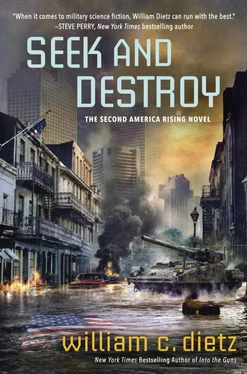
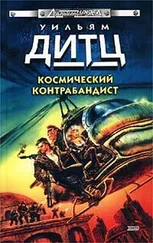
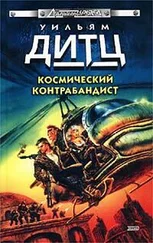
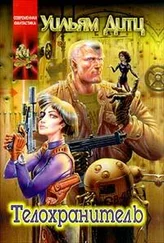
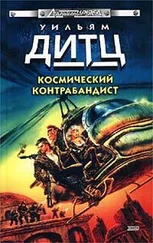
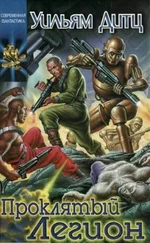
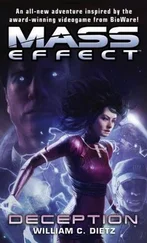


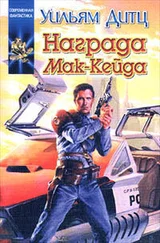
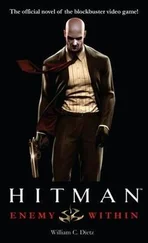
![Уильям Дитц - Избранные произведения в одном томе [Компиляция]](/books/389750/uilyam-ditc-izbrannye-proizvedeniya-v-odnom-tome-k-thumb.webp)
